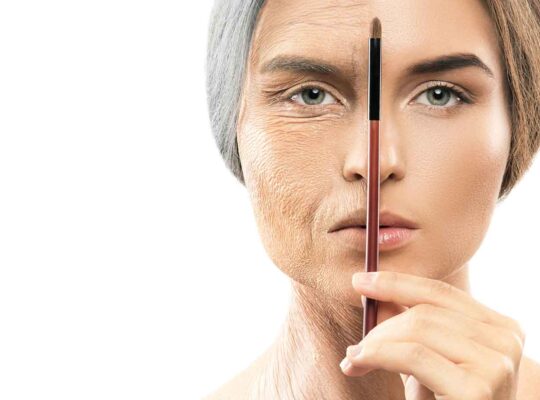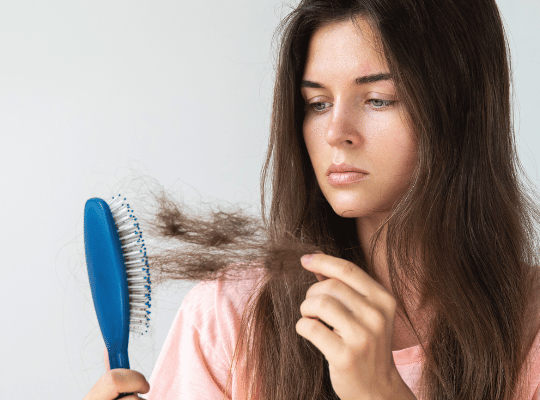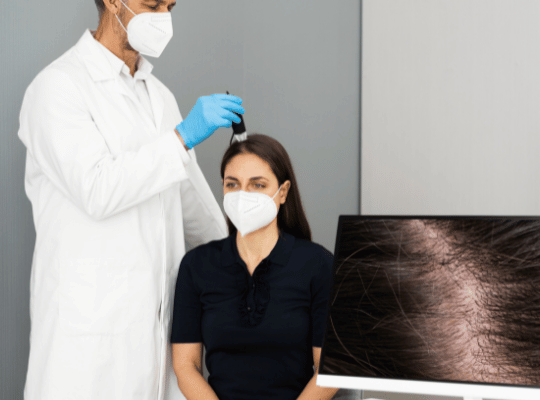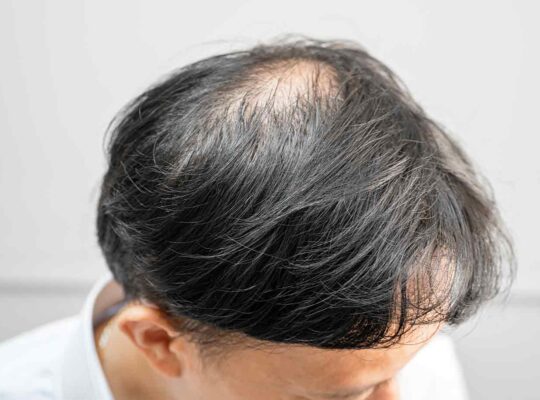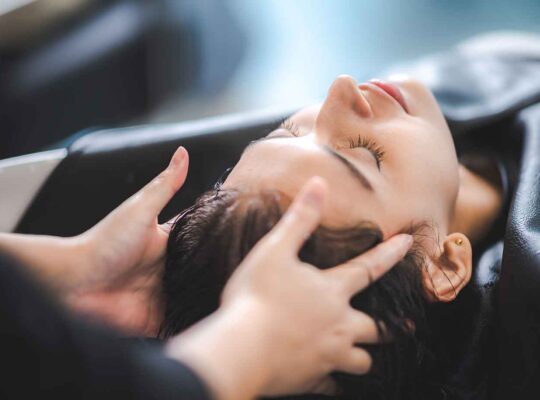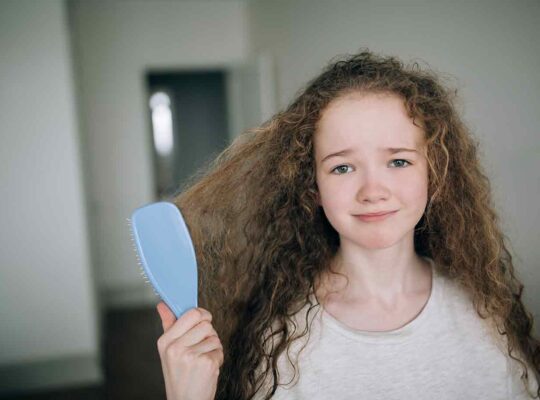Do you ever find yourself scratching your scalp while noticing more hair on your brush than usual? Hair loss accompanied by an itchy scalp is a common problem that can be both frustrating and concerning. While it might seem like a minor inconvenience, these symptoms could be signs of an underlying issue that needs attention. Understanding the causes of hair loss and an itchy scalp is crucial for finding the right treatment and preventing further problems. Let’s dive into what could be causing these issues, how to diagnose them, and the best ways to treat and prevent them.
1.Causes of Hair Loss and Itchy Scalp
Scalp Conditions: What’s Happening on Your Head?
Several scalp conditions can cause both itching and hair loss. Here are some of the most common ones:
- Dandruff and Seborrheic Dermatitis: Dandruff is caused by an overgrowth of yeast on the scalp, leading to flaking and itching. Seborrheic dermatitis is a more severe form of dandruff that results in red, scaly patches on the scalp. Both conditions can lead to hair thinning if not treated properly.
- Psoriasis: This is an autoimmune condition where the skin cells on your scalp multiply too quickly, causing thick, scaly patches that can be itchy and painful. Psoriasis on the scalp can lead to hair loss, especially if the urge to scratch becomes too intense.
- Fungal Infections (e.g., Ringworm): A fungal infection like ringworm can cause a red, ring-shaped rash on the scalp. It’s highly contagious and can lead to significant hair loss in the affected areas.
Hair Loss Types: Why Are You Losing Hair?
There are various types of hair loss, each with its causes and patterns:
- Androgenetic Alopecia: Also known as male or female pattern baldness, this type of hair loss is genetic and typically follows a predictable pattern. In men, it often starts with a receding hairline, while in women, it usually manifests as thinning around the crown.
- Telogen Effluvium: This condition occurs when a large number of hair follicles enter the resting phase simultaneously, leading to widespread hair shedding. It’s often triggered by stress, illness, or hormonal changes.
- Alopecia Areata: This is an autoimmune disorder where the immune system attacks hair follicles, causing sudden hair loss in small, round patches on the scalp or other areas of the body.
External Factors: Could It Be Something You’re Doing?
Sometimes, hair loss and scalp itchiness are caused by factors outside of your body:
- Allergic Reactions to Hair Products: Shampoos, conditioners, dyes, and other hair products can sometimes cause allergic reactions that result in an itchy scalp and hair loss. Ingredients like sulfates, parabens, and certain fragrances are common culprits.
- Environmental Factors: Pollution, weather changes, and exposure to harsh chemicals can irritate the scalp and contribute to hair loss. For example, dry, cold weather can strip the scalp of its natural oils, leading to dryness and itching.
2.Diagnosing the Problem
Symptoms to Watch For: What Are the Warning Signs?
To determine if you need professional help, keep an eye out for these symptoms:
- Persistent Itchiness: If your scalp is constantly itchy and doesn’t improve with regular washing, it could be a sign of an underlying condition.
- Visible Hair Thinning or Bald Patches: Noticing more hair in your brush, on your pillow, or in the shower than usual? If this is accompanied by bald patches or noticeable thinning, it’s time to take action.
Consultation and Tests: Why Seeing a Dermatologist Matters
If you’re dealing with hair loss and an itchy scalp, it’s essential to consult a dermatologist. They can conduct various tests to pinpoint the cause:
- Scalp Biopsy: A small sample of scalp tissue is taken and examined under a microscope to identify conditions like psoriasis, fungal infections, or alopecia areata.
- Blood Tests: These can help identify underlying issues like nutritional deficiencies, thyroid problems, or hormonal imbalances that might be contributing to hair loss and scalp issues.
3.Treatment Options
Medical Treatments: What Can Your Doctor Prescribe?
There are several medical treatments available to address hair loss and an itchy scalp:
- Topical Corticosteroids: These are anti-inflammatory medications applied directly to the scalp to reduce inflammation and itching. They’re often prescribed for conditions like psoriasis and seborrheic dermatitis.
- Antifungal Shampoos: If a fungal infection like ringworm is the culprit, antifungal shampoos can help eliminate the infection and reduce symptoms.
- Minoxidil for Hair Regrowth: Minoxidil is a popular treatment for androgenetic alopecia. It’s applied directly to the scalp to stimulate hair follicles and promote hair growth.
Lifestyle and Home Remedies: How Can You Help Yourself?
In addition to medical treatments, there are several lifestyle changes and home remedies that can help manage your symptoms:
- Proper Scalp Hygiene: Regularly washing your hair with a gentle shampoo can help remove excess oil, dead skin cells, and product buildup that contribute to scalp itchiness.
- Use of Natural Oils: Oils like tea tree oil and coconut oil have antifungal and moisturizing properties that can soothe an itchy scalp and support healthy hair growth. Apply these oils directly to the scalp and massage them in.
- Dietary Adjustments: Eating a diet rich in vitamins and minerals, particularly those that support skin and hair health like biotin, zinc, and omega-3 fatty acids, can improve scalp condition and reduce hair loss.
4.Prevention Strategies
Hair Care Tips: What Should You Be Doing?
Preventing hair loss and scalp itchiness starts with proper hair care:
- Choosing the Right Hair Products: Opt for shampoos and conditioners that are free from harsh chemicals like sulfates and parabens. Look for products labeled as “gentle” or “for sensitive scalp.”
- Regular Washing and Conditioning: Wash your hair regularly to keep your scalp clean, but don’t overdo it—washing too often can strip your scalp of its natural oils, leading to dryness and irritation.
Scalp Care: How to Protect Your Scalp?
Taking care of your scalp is just as important as taking care of your hair:
- Avoiding Harsh Chemicals and Heat Styling: Limit the use of chemical treatments like dyes and perms, and avoid excessive heat styling, which can damage the scalp and hair follicles.
- Regular Scalp Massages: Massaging your scalp helps improve blood circulation, which can promote hair growth and keep your scalp healthy. You can do this yourself using your fingers or a special scalp massager.
5.When to Seek Professional Help
Red Flags: When Should You See a Doctor?
It’s important to know when your symptoms are serious enough to require professional help:
- Sudden or Severe Hair Loss: If you experience sudden or significant hair loss, especially in patches, it’s crucial to see a dermatologist right away.
- Uncontrollable Itching or Pain: If your scalp itchiness is severe, painful, or accompanied by swelling or redness, it could be a sign of an infection or other serious condition.
Long-Term Management: How to Keep Your Hair and Scalp Healthy?
For long-term management of scalp conditions and hair loss, continuous care and follow-up with a healthcare provider are essential. This might include:
- Regular Check-Ups: Periodic visits to your dermatologist can help monitor your condition and adjust treatments as needed.
- Adapting to Changes: If your symptoms change or new ones appear, don’t hesitate to seek further evaluation to keep your scalp and hair in the best possible condition.
Comparison of Scalp Conditions and Their Symptoms
| Scalp Condition | Symptoms | Related Hair Loss |
|---|---|---|
| Dandruff | Flaky scalp, mild itching | Potential thinning if severe |
| Seborrheic Dermatitis | Red, scaly patches, intense itching | Hair thinning in affected areas |
| Psoriasis | Thick, scaly patches, pain, and itching | Possible hair loss from scratching |
| Ringworm (Fungal Infection) | Red, ring-shaped rash, bald patches, itching | Significant hair loss in infected areas |
| Androgenetic Alopecia | Receding hairline, thinning at crown (men); thinning at part (women) | Gradual hair loss over time |
| Telogen Effluvium | Widespread hair shedding | Temporary, diffuse hair loss |
| Alopecia Areata | Sudden, round bald patches | Rapid hair loss in affected patches |
Conclusion
Dealing with hair loss and an itchy scalp can be frustrating, but understanding the causes and knowing how to treat and prevent them can make a big difference. By paying attention to your symptoms, seeking professional help when necessary, and taking good care of your scalp and hair, you can manage these issues more effectively. Remember, the sooner you address the symptoms, the better your chances of preventing further problems and keeping your hair and scalp healthy.
FAQs About Hair Loss and Itchy Scalp
- Can dandruff cause hair loss?
- Dandruff itself doesn’t cause hair loss, but the itching and scratching associated with it can lead to hair thinning.
- How can I tell if my hair loss is from stress or something else?
- If your hair loss started after a period of intense stress, it might be telogen effluvium. However, a dermatologist can provide a definitive diagnosis.
- Are natural oils effective for treating an itchy scalp?
- Yes, natural oils like tea tree oil and coconut oil can help soothe an itchy scalp, especially if the itchiness is due to dryness or mild fungal infections.
- What’s the best way to prevent scalp itchiness?
- Regular scalp hygiene, using gentle hair products, and avoiding harsh chemicals can help prevent scalp itchiness.
- When should I see a doctor for hair loss and an itchy scalp?
- If your symptoms are severe, persistent, or accompanied by pain, redness, or swelling, it’s important to consult a dermatologist.


